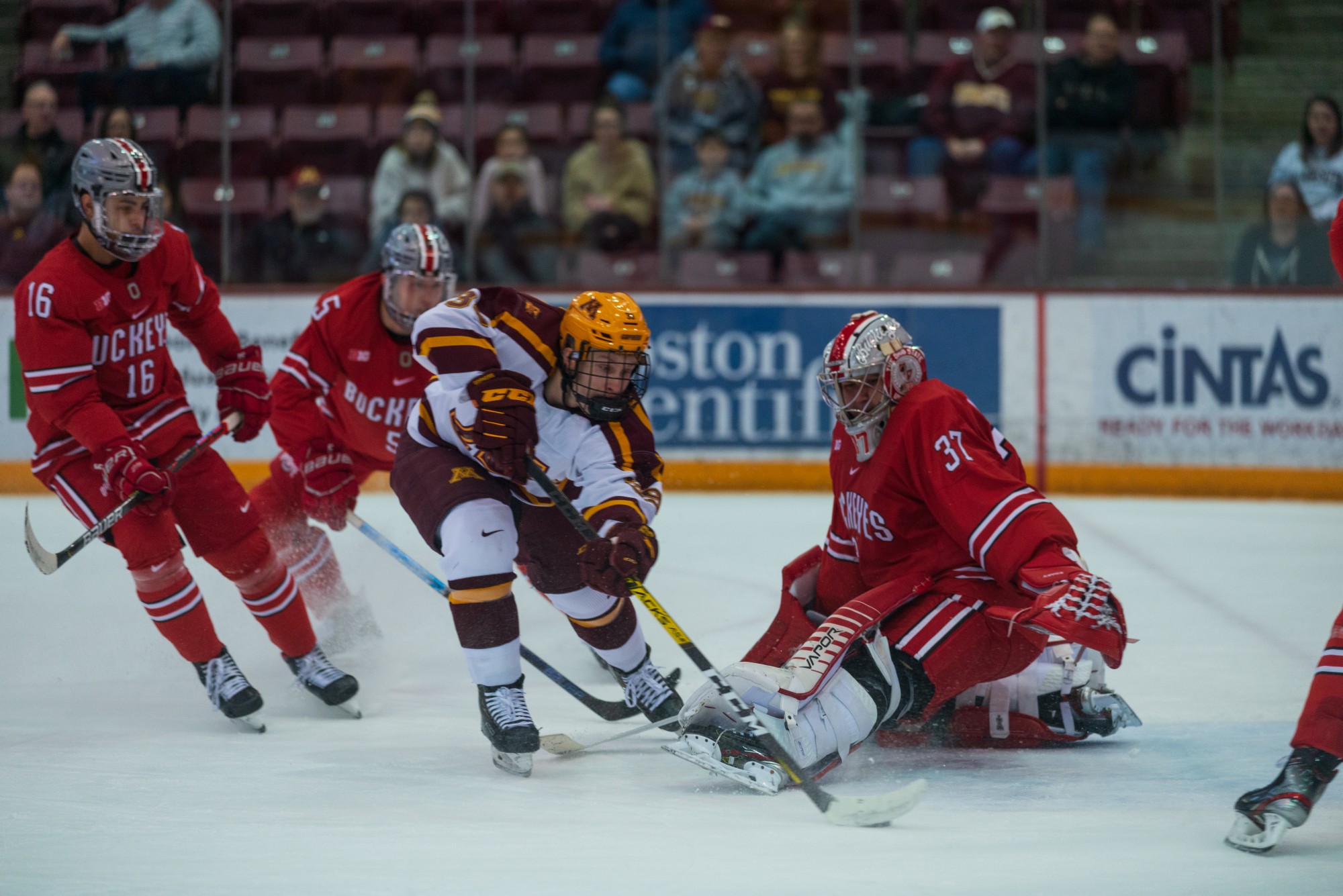Three current University of Minnesota Gopher players competed in the 2022 Winter Olympic Games in Beijing, China amid the COVID-19 pandemic as part of the USA men’s hockey team.
This year, the National Hockey League did not allow players to participate in the Olympics to avoid further postponing the games that were rescheduled due to COVID-19, leaving Team USA to rely on collegiate athletes. After defeating Germany on Feb. 13, the team lost in the quarterfinals Wednesday.
This is not the first time current University hockey athletes played in the Olympics. The 1980 Olympic hockey team included nine Gophers. Commonly referred to as the “Miracle on Ice,” the 1980 team beat the four-time gold medal winning Soviet team.
During the Cold War, this win became more than just the victory needed to proceed to the championship, according to the 1980 Miracle Team’s website.
According to the team website, President Jimmy Carter indicated the U.S. was going to withdraw from the 1980 Summer Olympics in Moscow because of the Soviet invasion in Afghanistan. When the U.S. beat Russia, many saw it as an ideological victory for the US, according to Jon Cherney, executive director of the Herb Brooks Foundation.
“It was really a national political event as well,” Cherney said. “It really resonated way beyond sports.”
Herb Brooks, a former Gopher men’s hockey coach, led the 1980 Olympic team as head coach. After Brooks’ death in 2003, the Herb Brooks Foundation was established to honor his legacy and give kids access to hockey who may not have the opportunity due to financial restraints, Cherney said.
“The last time [the USA men’s hockey team] won the gold was when they had the most Minnesota kids on the team,” said 1980 USA Olympic hockey player and Gopher alumni Rob McClanahan. “There’s more hockey players in Minnesota and Minnesota has a long history of developing the best players.”
Current Gopher team captain Ben Meyers said representing team USA in the Olympics has been a dream come true in a press conference on Jan. 17 before the Games started.
“It’s something as a young kid, you know you watch the movie ‘Miracle,’” Meyers said. “Growing up in the states is just iconic to see the red, white and blue.”
The Disney movie ‘Miracle’ was produced in 2004 to acknowledge the team’s accomplishments and highlight their story.
Brock Faber, a sophomore on the team, said he shared this dream as well and watched the movie ‘Miracle On Ice’ about 50 times growing up.
“You don’t really understand how special it is until you get asked to go and the emotions rush in,” Faber said at the press conference.
In comparison to the 1980 team, the current team has had more hours of individual training to prepare for the games, McClanahan said.
“They’re mostly college kids and a lot of the other countries have some of their professionals that are playing, so I think it’s gonna be really exciting to think about the college kids today,” Cherney said. “They’ve played a lot of games, these kids have a lot of experience.”
However, as a result of the pandemic, the team has had significantly less time to practice together.
“It’s hard to find chemistry in two weeks, team dynamics play a big role,” McClanahan said. “A challenge is to find continuity with more than just three or four players, find continuity with every line and keep the right group of guys on the ice to reach their highest goals.”
Despite playing 63 preseason games, one of the greatest obstacles for the 1980 team was coming together and competing against more established groups of players, McClanahan said.
Meyers said at the press conference he has played with and against some of his USA teammates for many years, however there was still an adjustment period for the team.
“You gotta learn to adapt on the fly,” Meyers said. “It’s certainly a challenge that every team has to face.”
Faber said he believes they can achieve the chemistry needed to be successful during the Games.
“We don’t really have a choice, we have to mold,” Faber said. “Representing the country is obviously special, doing the best you can, as unselfishly as you can, is important.”
While competing countries’ teams may have more experience practicing together, other competitors also have not had much time to train as a team.
“In my opinion, it’s really all a matter of who comes together quickest,” Cherney said.
Faber said he thinks it will be an adjustment playing against older, more experienced players from other countries.
“I’m excited for the challenge and I think all the college guys are really looking forward to making a name out of themselves playing as best they can for this country,” Faber said.



















